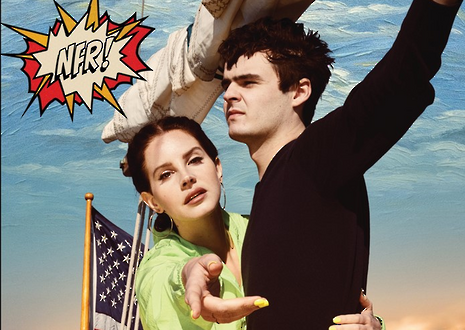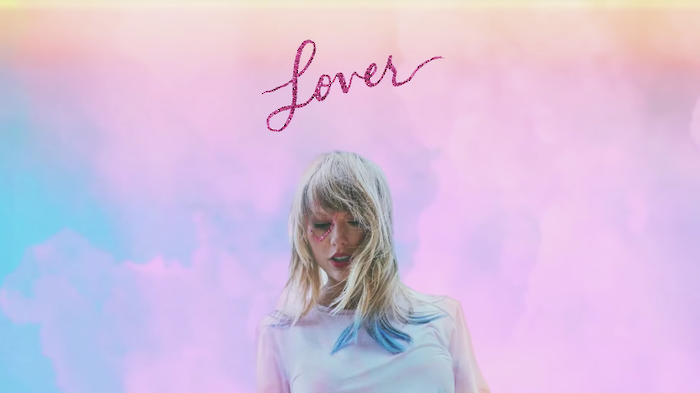In Norman Fucking Rockwell! Lana Del Rey finds power through introspection
In a world that seems intent on dismantling itself, Norman Fucking Rockwell! sees Lana Del Rey reclaim hope

Eschewing the poetic immediacy of previous titles like Ultraviolence or Honeymoon, the title of Lana Del Rey’s sixth studio album is an homage to prolific painter and illustrator Norman Rockwell. After initially dedicating his time to creating idealised, almost-propagandistic, depictions of American life, in his later years Rockwell began to tackle a range of social issues, such as poverty and civil rights. It is therefore very fitting that, through taking his name as her album title, Lana Del Rey incites us to draw parallels between Rockwell’s work and her own, which has both broadened thematically and deepened artistically since the heady days of 2012’s Born to Die.
It is perhaps most fitting of all that she decorates Rockwell’s name with an expletive and an exclamation mark, a knowing wink to her distinctive blend of sincerity and spectacle.
Throughout her eight years within the public consciousness, Lana Del Rey has always been a complex and somewhat unplaceable figure – a woman whose work is drenched in sarcasm and irony, whose songs are often unapologetically sad, and whose lyricism seems endlessly preoccupied with faded Hollywood glamour. But in all this time, Lana Del Rey hasn’t just been languishing in the sepia-tinged world of her own construction. On Norman Fucking Rockwell, she starts to tackle some serious and difficult questions. How, for example, can she romanticise a Long Beach sunset or pay homage to her departed idols in an age where America (and the world) seems mired in chaos?
A resulting sense of quiet anguish runs through The Greatest, a stunning ballad in which the singer concludes: “The culture is lit, and if this is it, I had a ball / I guess that I’m burned out after all”. It’s a powerful pun, lamenting the uneasy dichotomy between the relentless flow of pop culture and a world that seems to be figuratively and literally in flames. The track sounds timeless, but simultaneously serves as an epitaph for the last decade, at a time in which the world seems perhaps less secure than ever.
Never before has Lana seemed so utterly unconcerned with commercial success.
But despite the chaos of the world around her, Lana Del Rey has never seemed surer of herself or of her relationships. In Mariners Apartment Complex she’s “the board, the lightning, the thunder”. On the album’s title track she decries the incorrigibility of a “man-child”, but concludes “why wait for the best when I could have you?”. No longer fawning over bad-boy archetypes with declarations of eternal love, Lana Del Rey now seems stronger than ever before, and her music is all the better for it. Her vocals have never sounded so expressive – she pushes her iconic lower register to its limits on California and slips into a heart-breaking, heady slur on Fuck it I love you. Through all this, Lana Del Rey manages to sonically share the thrill of finally letting go, and the heady rush of allowing yourself to fall in love.
The ten-minute-long psychedelic epic Venice Bitch sees Lana do what she does best, painting vivid pictures of love through evocative images of “jeans and leather” and depictions of fleeting happiness in which “nothing gold can stay”. The listener is enveloped in luscious licks of electric guitar and gorgeous harmonies, and the end result is one of her best songs, an enchanting piece that completely immerses you in the last embers of a Californian summer. Creating songs such as this, Lana has never before seemed so utterly unconcerned with commercial success.
‘Norman Fucking Rockwell!’ concludes with the thrillingly subversive hope is a dangerous thing for a woman like me to have – but I have it. In this finale, Lana’s voice is intimate, almost entirely unadorned beyond a simple and mournful piano accompaniment. She sings of creativity and depression, inserting cryptic references to her past which are perhaps only fully understood by herself. Although making clear that she is fully aware of the precarious nature of hope, she finally sings the defiant words: “… but I have it”.
Even amidst the roiling chaos present in our world, Lana Del Rey defiantly declares her hope. Extending her hand towards her listeners from her album art, it truly feels like, just maybe, we can have hope too.
 News / Local business in trademark battle with Uni over use of ‘Cambridge’17 January 2026
News / Local business in trademark battle with Uni over use of ‘Cambridge’17 January 2026 News / Cambridge bus strikes continue into new year16 January 2026
News / Cambridge bus strikes continue into new year16 January 2026 Comment / Fine, you’re more stressed than I am – you win?18 January 2026
Comment / Fine, you’re more stressed than I am – you win?18 January 2026 News / News in Brief: cosmic connections, celebrity chefs, and ice-cold competition18 January 2026
News / News in Brief: cosmic connections, celebrity chefs, and ice-cold competition18 January 2026 Film & TV / Anticipating Christopher Nolan’s The Odyssey17 January 2026
Film & TV / Anticipating Christopher Nolan’s The Odyssey17 January 2026










